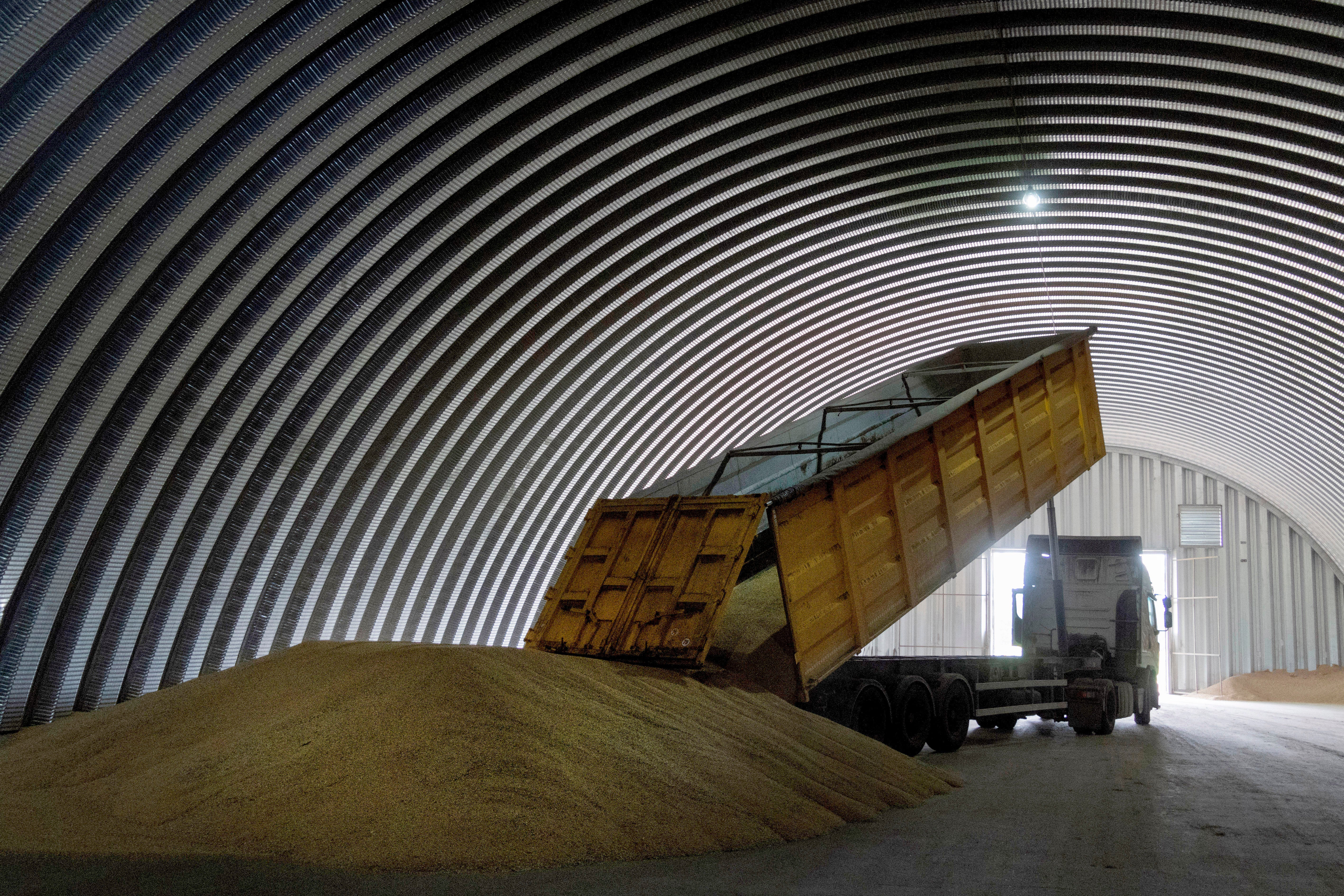Poland to test quality of Ukraine grain amid farmer protests
Poland’s new agriculture minister has vowed to introduce quality controls on the massive inflow of grain from Ukraine and to ensure its efficient transport abroad

Your support helps us to tell the story
From reproductive rights to climate change to Big Tech, The Independent is on the ground when the story is developing. Whether it's investigating the financials of Elon Musk's pro-Trump PAC or producing our latest documentary, 'The A Word', which shines a light on the American women fighting for reproductive rights, we know how important it is to parse out the facts from the messaging.
At such a critical moment in US history, we need reporters on the ground. Your donation allows us to keep sending journalists to speak to both sides of the story.
The Independent is trusted by Americans across the entire political spectrum. And unlike many other quality news outlets, we choose not to lock Americans out of our reporting and analysis with paywalls. We believe quality journalism should be available to everyone, paid for by those who can afford it.
Your support makes all the difference.Poland’s new agriculture minister vowed Wednesday to introduce detailed quality controls on the massive inflow of grain from Ukraine transiting through the country, and to ensure its efficient transport abroad. The move follows protests by angry Polish farmers, who say they face bankruptcy because of a glut of cheap Ukrainian grain.
Minister Robert Telus faced sharp criticism from lawmakers in parliament, who alleged that trading companies linked to the government were making huge profits from selling cheap, untested Ukrainian produce in Poland, instead of facilitating its transfer to grain-hungry Africa.
Telus replaced the previous agriculture minister, Henryk Kowalczyk, who resigned last week just hours before an official visit by Ukrainian President Volodymyr Zelenskyy. During the visit, the Polish and Ukrainian leaders said they had found a rapid resolution to the "grain problem" but provided no details.
Amid the Russian invasion, the European Union lifted duties on Ukrainian grain to facilitate its transport to Africa and the Middle East. However, it has flooded markets in Poland, Romania and other EU countries that were only supposed to be transit routes.
Polish farmer groups staged protests Wednesday at border crossings with Ukraine, but police prevented them from blocking the rail tracks. Dozens of cargo wagons, each containing some 70 tons of grain, enter from Ukraine each day, further increasing farmers' anxiety for the future and for their crops this year.
Protesters said the grain transit should be prioritized in the same way as the heavily guarded trans-shipment of arms to Ukraine, to prevent the grain from flooding the Polish market.
Instead, they argued, government-linked companies were allowed to import it as cheap, low-quality grain, and then sell it to bread and pasta plants as high-quality Polish produce.
Tomasz Obszański, of the farmers' Solidarity union said that some three million tons of grain were intended to “make it to Africa, but were instead received by traders, once they crossed the border into Poland. Many companies have used this situation to make millions ... in profits.”
Prosecutors in the region of eastern Poland bordering Ukraine are investigating allegations that dozens of tons of Ukrainian grain in transit were sold to Polish food plants.
Telus and Ukraine's agrarian policy minister, Mykola Solskyi, said they had suspended the import of Ukrainian grain into Poland for domestic consumption and would take steps to ensure it only transited to third countries.